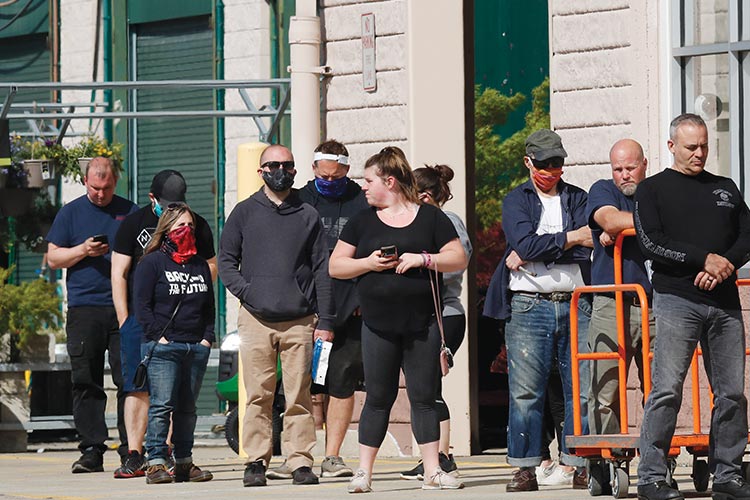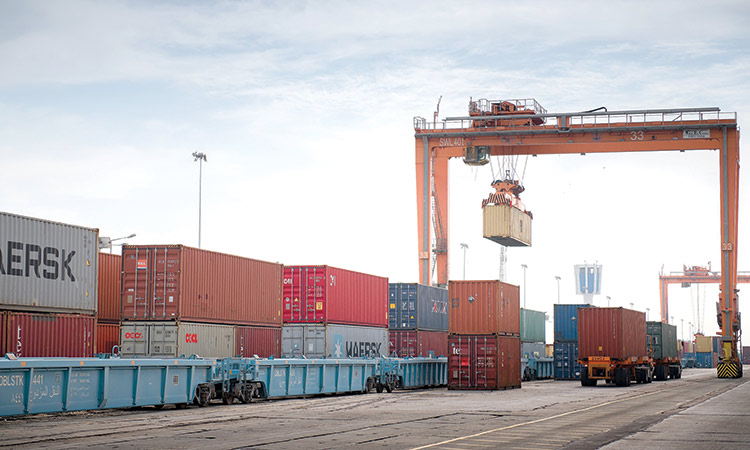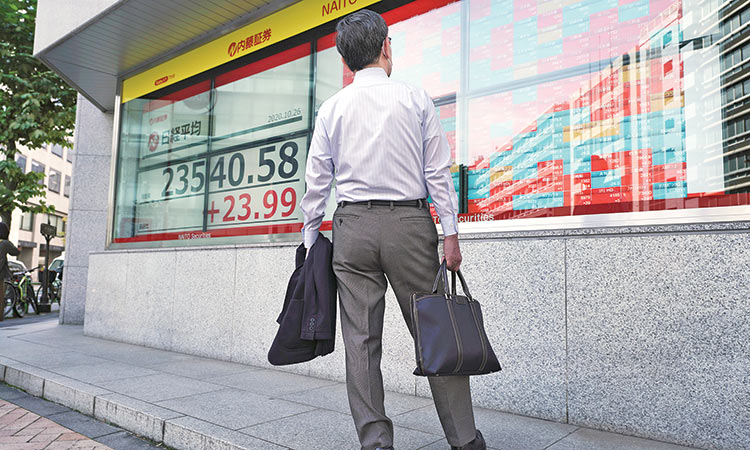World stock markets edge up, oil prices highest in over a month

Shoppers, some wearing protective masks, wait in line outside the Home Depot store in Londonderry, Ireland, on Friday. AP
World stocks edged up on Friday and oil prices rallied more than 2%, lifting sentiment after a week pressured by deteriorating US-China relations.
Oil prices rose to their highest levels in more than a month on signs that demand from China is picking up and data showing China’s industrial output in April expanded for the first time this year.
Oil prices rose to put the market on course for a third week of gains on demand optimism as people slowly emerge from lockdowns, while producers push ahead with massive output cuts.
But news that the Trump administration has moved to block shipments of semiconductors to Huawei Technologies from global chipmakers could ramp up tensions with China tempered the upbeat mood.
US stock market futures turned lower, pointing to a negative open for Wall Street shares, while European markets pared gains.
After a bruising week, a broad measure of European stocks was set to end the week almost 4% lower - the biggest weekly fall since the mid-March rout in global stocks as the coronavirus crisis spread worldwide.
MSCI’s world stock index, a touch firmer on Friday, is down around 2.7% this week and also set for its biggest weekly drop since March.
Analysts said this week’s decline, while a natural correction after a rally since mid-March, also reflected growing concerns about rising U.S.-China tensions.
US President Donald Trump on Thursday signaled a further deterioration in his relationship with China over the novel coronavirus, saying he had no interest in speaking to President Xi Jinping and suggesting he could even cut ties with Beijing.
“There is no doubt that the optics around the trade/diplomacy backdrop have worsened in the last week and this has had a negative influence,” Chris Bailey, European strategist at Raymond James in London, said.
“There has also been a subtle change in the perceptions of market participants, for example the negative interest rate debate getting a very good airing in the United States.” US Federal Reserve Chair Jerome Powell has brushed off the notion that the Fed could push rates below 0% after futures tied to Fed interest rate policy expectations began pricing a small chance of sub-zero US rates within the next year.
Two-year US Treasury yields are trading at just 0.14%, while short-dated bond yields in Britain have dipped back below 0% this week.
Faced with an exceptional hit from the coronavirus crisis, central bankers are under intense pressure to do more to shore up battered economies.
The German economy contracted by 2.2% in the first quarter, its steepest three-month slump since the 2009 financial crisis as shops and factories were shut in March to contain the spread of the coronavirus, preliminary data showed on Friday.
“While the drop is smaller than during the worst quarter of the financial crisis (Q1 2009), the most serious damage of COVID-19 is yet to come,” Florian Hense, an economist at Berenberg, said.
On the currency markets, the euro was marginally softer at around $1.0798, while the dollar dipped 0.2% to 107.02 yen.
Britain’s currency came under further pressure after the European Union’s Brexit negotiator Michel Barnier said that the third round of talks with Britain on a new partnership was “disappointing”.
Sterling was last down 0.6% at $1.2156 and almost 0.5% lower versus the euros.
The Turkish lira was back below 7 per dollar and on course for its best week since February as it recovers from all-time lows.
Reuters reported that Turkey has reached out to various countries for swap lines as it scrambles to try to shore up financing.
Europe’s stock markets were mostly firmer Friday as investors focused more on easing lockdowns than fears of another coronavirus wave, while Frankfurt shrugged off data showing that Germany has entered recession.
Some investors went fishing for bargains a day after stocks tanked on news of spiking jobless claims in the United States.
“After two down days for the markets, the week is ending on a more positive note for equities worldwide as fears of a second wave in the current pandemic ease for now,” said AJ Bell investment director Russ Mould.On Wall Street however, the Dow Jones index came off to a weaker start after Thursday’s late rally, with the US trend pushing European markets off their highs.
“It’s not been the best week for stock markets,” said Craig Erlam at OANDA.
In addition to bad European growth numbers and rising tension between the US and China “the threat of a second wave of coronavirus cases is upon us in some countries just as others are starting to emerge from the first”, he said.
The coronavirus pandemic has tipped Germany into a recession, official data showed Friday, with Europe’s top economy suffering its steepest quarterly contraction in more than a decade as lockdown measures began to bite.
The German economy shrank by 2.2 per cent in the first quarter of 2020, federal statistics agency Destatis said, calling the quarter-on-quarter decline “the worst since the global financial crisis” in 2009.
The agency also revised its gross domestic product (GDP) figure for the final quarter of 2019 from zero growth to a contraction of 0.1 per cent. That means Germany has experienced two consecutive quarters of decline, meeting the technical definition of a recession.
Agencies







